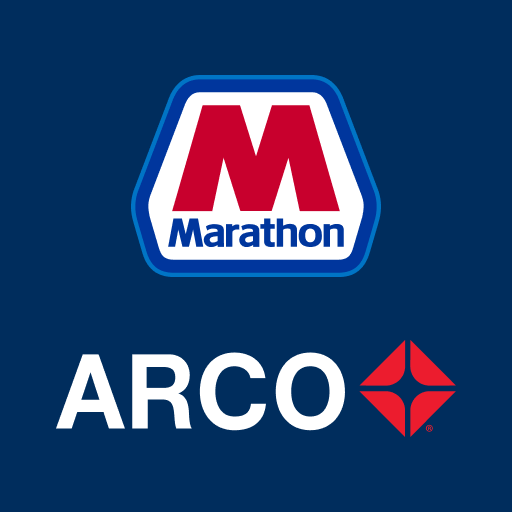How to Run a Marathon from Nothing
To run a marathon from nothing, start by gradually increasing your mileage each week and incorporating regular strength training. Focus on building endurance, improving your running form, and staying consistent with your training.
Running a marathon is a daunting task that requires dedication, discipline, and proper training. Whether you are a complete beginner or someone who hasn’t run in years, it is possible to achieve this impressive feat with the right approach. We will outline a step-by-step guide on how to go from zero to marathon-ready.
By following these tips, you will be on your way to completing your first marathon and experiencing the incredible sense of accomplishment that comes with it. So let’s lace up those running shoes and get started on this exciting journey towards becoming a marathon runner.
Setting Your Goal
When embarking on the journey of running a marathon from scratch, the first crucial step is Setting Your Goal. This sets the foundation for your entire training process.
Choosing The Right Marathon
Consider factors like location, time of year, course difficulty, and your personal preference. Choosing a marathon that aligns with your abilities is key to a successful race day.
Setting A Realistic Training Timeline
Establish a realistic timeline that allows enough time for gradual progression and avoids burnout.

Credit: www.womensrunning.com
Building Endurance
If you’re starting from zero and aiming to complete a marathon, one of the key factors you need to focus on is building endurance. Running 26.2 miles requires stamina and the ability to sustain a consistent pace for an extended period of time. To accomplish this, there are two essential approaches you should incorporate into your training regime: starting slow and gradually increasing distance, and incorporating strength training.
Start Slow And Gradually Increase Distance
Building endurance starts with laying a solid foundation. When you begin your marathon training, it’s important to resist the urge to push yourself too hard, too soon. Starting slow and gradually increasing your distance will help prevent injuries and allow your body to adapt to the demands of running.
- Begin by setting achievable goals for yourself. If you’re just starting out, start with a run/walk combination, gradually increasing your running intervals.
- Gradually increase your mileage by no more than 10% per week. Consistency is key, so resist the temptation to overdo it.
- Listen to your body. If you experience any pain or discomfort, take a rest day or adjust your training plan accordingly.
Remember, marathon training is a marathon in itself. Don’t rush the process and trust that gradual progress will yield better results in the long run.
Incorporating Strength Training
Building endurance is not just about running long distances; it also involves strengthening the muscles that support your running form and help prevent injuries. Incorporating strength training exercises into your routine will contribute to your overall endurance and make you a more efficient runner.
Here are a few key strength training exercises to incorporate:
| Exercise | Description |
|---|---|
| Squats | Targets your quadriceps, hamstrings, and glutes. Stand with your feet shoulder-width apart, lower your hips as if you’re sitting back into a chair, then push through your heels to stand back up. |
| Lunges | Targets your quadriceps, hamstrings, and glutes. Step forward with one leg, lowering your body until your front knee forms a 90-degree angle, then push through your heel to return to the starting position. |
| Planks | Strengthens your core muscles. Start in a push-up position, but with your forearms on the ground. Keep your body in a straight line from head to toe, engaging your abs, and hold the position for as long as you can. |
| Push-ups | Targets your chest, shoulders, and arms. Start in a plank position with your hands shoulder-width apart. Lower your body until your elbows form a 90-degree angle, then push back up to the starting position. |
Incorporate strength training exercises into your routine twice a week, ensuring you take rest days in between sessions to allow your muscles to recover. As you become stronger, you’ll notice improved endurance and stability during your runs.
Nutrition And Hydration
When it comes to running a marathon, nutrition and hydration play a crucial role in your performance and overall well-being. Fueling your body with the right foods and staying properly hydrated can help you train effectively, prevent fatigue, and improve your endurance. In this section, we will discuss the key aspects of fueling your body for long runs and the importance of hydration before, during, and after training.
Fueling Your Body For Long Runs
Properly fueling your body before, during, and after long runs is essential to maintain energy levels and optimize your performance. To ensure you have enough fuel to power through your training, aim for a balanced diet that includes a combination of carbohydrates, protein, and healthy fats.
Carbohydrates are the primary source of fuel for your muscles during exercise. Incorporate foods such as whole grains, fruits, and starchy vegetables into your meals and snacks. These complex carbohydrates will provide you with sustained energy throughout your runs.
Additionally, include a moderate amount of protein in your diet to promote muscle repair and growth. Lean meats, poultry, fish, eggs, dairy products, and plant-based protein sources like legumes and tofu are excellent choices. Incorporating protein-rich foods in each meal and snack can assist in recovery and prevent muscle breakdown.
Don’t forget about healthy fats, which are essential for overall health and endurance. Include sources like avocados, nuts, seeds, and olive oil in your diet. These fats help provide lasting energy and aid in the absorption of important fat-soluble vitamins.
Hydrating Before, During, And After Training
Proper hydration is a vital component of your training. Before you even start your run, make sure you are well-hydrated by consuming fluids throughout the day leading up to your training session. Water is generally the best choice, but sports drinks can be beneficial for longer training sessions, especially if you sweat a lot or exercise in hot conditions.
During your run, ensure you maintain proper hydration by drinking water or a sports drink at regular intervals. Aim to consume about 4-8 ounces of fluid every 15-20 minutes to replace what you lose through sweat and prevent dehydration. This amount can vary depending on factors such as your sweat rate and environmental conditions.
After your run, replenish the fluids you have lost by consuming fluids and electrolytes. Electrolytes are essential minerals like sodium, potassium, and magnesium, which are lost through sweat. You can obtain electrolytes from sports drinks or replenish them with foods like bananas, coconut water, or homemade electrolyte-rich drinks. Remember to listen to your body’s thirst signals and drink enough to quench your thirst.
In conclusion, paying attention to your nutrition and hydration is crucial when training for a marathon. Fueling your body with the right foods and staying properly hydrated will help optimize your performance, prevent fatigue, and ensure you can cross that marathon finish line feeling strong and accomplished.
Managing Mental Challenges
Staying Motivated Throughout Training
Incorporate variety in your runs to keep it interesting.
- Set achievable weekly goals to track progress.
- Join a running group for support and accountability.
- Listen to energizing music or podcasts while running.
Mental Preparation For Race Day
Visualize yourself crossing the finish line successfully.
- Practice positive self-talk to boost confidence.
- Develop a race-day strategy and stick to it.
- Stay focused on your own pace and goals during the race.
Recovering And Preventing Injuries
Running a marathon from nothing can be a challenging yet rewarding experience. As you build up your endurance and put in the necessary training, it’s crucial to pay attention to recovering and preventing injuries. By prioritizing rest, understanding the importance of recovery, and taking precautions against common running injuries, you can ensure that you stay strong and healthy throughout your marathon journey.
Importance Of Rest And Recovery
Rest and recovery are essential components of any marathon training plan. It’s during rest that your muscles repair and grow stronger, helping to prevent overuse injuries. Adequate rest also allows your body to recover from the stress of training, reducing the risk of burnout and fatigue. Incorporating rest days into your training schedule is crucial for supporting your overall performance and well-being.
Tips For Preventing Common Running Injuries
Preventing running injuries is key to staying on track with your marathon training. Here are some tips to keep in mind:
- Proper footwear: Invest in high-quality, supportive running shoes that fit your feet and running style.
- Gradual increases: Avoid ramping up mileage too quickly to reduce the risk of overuse injuries.
- Strength training: Incorporate exercises that target the muscles supporting your running movements, such as squats, lunges, and core work.

Credit: marathonhandbook.com

Credit: www.lazygirlrunning.com
Frequently Asked Questions Of How To Run A Marathon From Nothing
How Long Does It Take To Train For A Marathon From Nothing?
It takes about 16-20 weeks to train for a marathon from scratch. This provides sufficient time to build endurance and avoid injury.
How Do You Run A Marathon If You Haven’t Trained?
Running a marathon without training is not recommended. Start with a walk/run strategy, listen to your body, and hydrate well. Remember to pace yourself.
How Do You Run A Marathon From Scratch?
To run a marathon from scratch, follow these steps: 1. Start by gradually increasing your running distance and intensity. 2. Develop a consistent training schedule, including both running and cross-training exercises. 3. Focus on building endurance and strength through long runs, intervals, and hill training.
4. Incorporate proper nutrition and hydration into your training plan. 5. Rest and recover adequately to prevent injuries.
Conclusion
In the journey to run a marathon, consistency and dedication are key. Remember to listen to your body and stay motivated. Celebrate small victories and keep pushing forward. With proper training and mindset, you can achieve your marathon goal. Embrace the challenge and enjoy the process.





